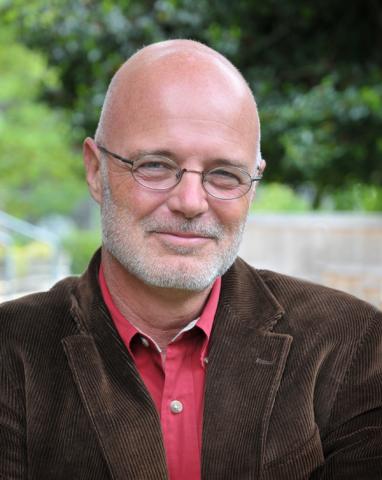
Brian D. McLaren is a best-selling author, speaker, activist and networker among innovative faith leaders. A former pastor, he has written 15 books, including The Great Spiritual Migration. He is an Auburn Senior Fellow, living in Florida.
Posts By This Author
America's Greatest Deficit is Spiritual, Not Merely Financial
With all the angst about the economy, the deficit, and a looming government shut-down, I'm still concerned that we're treating symptoms rather than diagnosing the underlying disease.
I know something about this. I spent a week in the hospital last year having loads of tests done -- blood work, heart scans, stress tests, and sonograms. I was discharged without a diagnosis, merely with hopes that by treating the symptoms, whatever was wrong would go away. It didn't. It turned out my real problem was a tick-born disease, and once it was diagnosed, a ten-dollar prescription of antibiotics cured me. Without that ten-dollar prescription to treat the real problem, I could have experienced life-long disability.
Budgets Are Still Moral Documents
What Does Violence in the Bible Tell Us About God?
Is God Violent?

mjones / Shutterstock
I recently received a note from a pastor and missionary we'll call Pete. It went like this: "I have read most of what you have written, including A New Kind of Christianity ... I would say I am in agreement with [much of what you write], but I do think you bring disservice to this argument in the evangelical world when you shun the 'violence' of God and the subsequent need for the cross' justification, which was also quite violent."
He continued: "You have a lot to say to the church, but when you make these kind of statements that don't really appear to hold weight under the plethora of biblical examples, it mutes your voice. The fact is the Old Testament is a God-ordained bloody mess, and the cross is the ultimate expression of it. This only highlights God's holiness, and when we try to mitigate this reality to save him from a secular mind, we mitigate the power of the cross as well, and end up with a less powerful narrative."
I don't know which shocks you more -- that I would question God's violence, or that Pete would defend it. My guess is that nearly all of us would be shocked one way or the other.
If you ask why this question is so important, I think "Sept. 11" is a good answer. Since then, we've been marinating in the issue of religious violence, day after day. One day we see a shaky video from the Middle East featuring terrorists blowing up a humvee, with shouts of "Allahu Akbar!" ("God is great!") in the background. Another day we hear a famous Christian televangelist say, "Blow them all away in the name of the Lord." Another day we read about Israel Defense Forces destroying the homes of Palestinians, defending their actions on the grounds that God promised them the land 4,000 years ago. And the day after that, we hear another Christian televangelist defending their actions, and urging the U.S. to join Israel in a war against Iran.
A lot is at stake.
American 'Exceptionalism' Can Degenerate Into Superiority
What I've Been Reading This Year
Post-Colonial Theology
Flipped: A Film Review
The Importance of Being Engineers
11 Women Writers You Should Be Reading
My Initial Response to President Obama's Speech
An Oily, Slimy, Putrid Epiphany
Joanna Weiss asks the right question in a recent Boston Globe editorial:
The Gulf Oil Spill as Seen from Africa
Is the Emerging Church for Whites Only?

STILLFX / Shutterstock
AT THE TURN of the millennium, I (Soong-Chan) began hearing a lot about the “emerging church.” It seemed that everywhere I turned somebody was talking about the emerging church. A clear definition of the term was elusive (see “What is the Emerging Church?” by Julie Clawson, below), but the emerging church seemed to reflect ministry and theology rising out of the generation after the baby boomers. In particular, the emerging church was Western Christianity’s attempt to navigate through the context of an emerging postmodern culture.
At the time the emerging church was coming into vogue, I was pastoring a multi-ethnic, urban church plant in the Boston area. It seemed that every brochure for nearly every pastors’ conference I received featured the emerging church. As I began to attend some of those conferences, I noticed that every single speaker who claimed to represent the emerging church was a white male. A perception was forming that this was a movement and conversation occurring only in the white community.
In terms of the public face of the emerging church, white males dominated.
On one occasion, I was at an emerging church conference and was told directly that non-whites were not of any significance in the emerging church. Granted, this was one specific instance, but it led to the sense that the emerging church was not a welcoming place for ethnic minorities. At another conference, on the future of the church, one of the speakers invited up a blond-haired, 29-year-old, white male, replete with cool glasses and a goatee, and pronounced him the face of the emerging church. “This guy is a great representative of the future of American Christianity.” I cringed. In terms of the public face of the emerging church, white males dominated. It seemed like the same old, same old. As per the lyrics by The Who: “Meet the new boss, same as the old boss.”